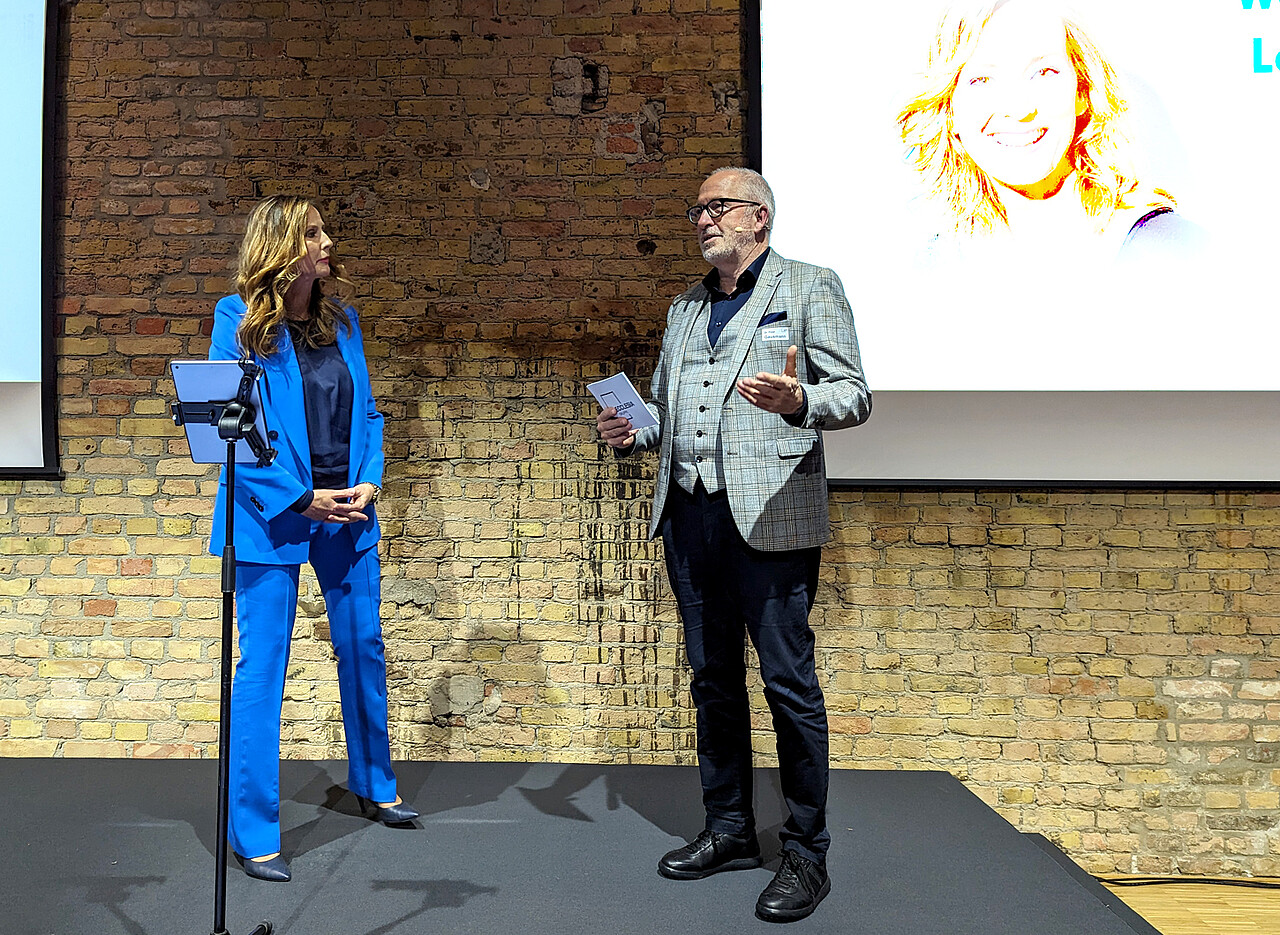
Change requires courage: Interview with well-known TV presenter Kristina zur Mühlen
We need role models who demonstrate the courage to embrace change: in politics, in business and in public administration.
Why do you think it is so difficult to embrace the future in times of crisis?
Crises often bring uncertainty. Nobody knows how long a crisis will last and what our lives will look like afterwards. This uncertainty can make people more hesitant to make plans for the future. When you have to focus entirely on the here and now during a crisis, you may simply lack the energy and time to think about the future. We should also not forget that crises can be emotionally draining. During such phases, it can be very difficult to look positively into the future. Crises can also bring about personal or social changes. And that, in turn, can trigger fears in some people. Fear is like a ball and chain that makes it difficult to embrace the future with an open mind and positivity.
Psychology calls the ability to embrace the unknown “future courage”. And this ability can be trained and acquired. “Future courage” is an attitude that is influenced by various factors. However, it is a process that also takes time.
We have a mentality of preservation in Germany. How can people in this country be persuaded to rethink?
First of all, it should be clear that anyone who breaks new ground must expect that their project could also go wrong. After all, no one has any experience in this area yet. So why should everything work out the first time? We assume that it will, and that's a good thing. Otherwise, we would lack the incentive to try new things. But you also have to be realistic. It would take a lot of luck if every innovation were to succeed at the first attempt. Every successful inventor had to carry out countless experiments to get closer to their goal. And they also suffered setbacks. Setbacks from which they learned, so that they continued to change their recipe or their experimental setup. Would you laugh at an inventor because they also had failures? You should congratulate him for not letting himself be dissuaded despite the defeats, but instead for continuing eagerly.
Unfortunately, however, there is also a lot of envy and malice in our society. That's why I can well understand why many people are reluctant to talk about their setbacks. Because what happens? You are portrayed as a failure, a dreamer, a unlucky fellow... This way of dealing with setbacks, defeats or mistakes contributes to many people no longer daring to try new things. What we need in our society is a modern culture of error, a sensible way of dealing with situations in which things have not worked out as we would have wished.
In view of climate change, the cultural transformation process must succeed very quickly. What are the chances for Germany in the coming years?
We need role models who demonstrate the courage to change: in politics, in companies and in public administration. Then the chances are not bad that a positive attitude towards the future will develop in society as a whole. And I am clearly on the team of future optimists and say: the chances are good. The solutions for the transformation process already exist. And the great thing is that the solutions are becoming more and more numerous and better and better. Many have already set out on this path. It's just that there is far too little talk about the positive examples. But they can motivate others to give it a try too. We need a lot more sharing of experiences and networking.
What would you recommend to companies that want to or even have to tackle the change?
There are countless external experts and consultants who can support companies in their transformation processes. Perhaps the best experts are sitting in your own company! It may be that some employees have long had their own ideas about what could be changed. And maybe they just don't dare to talk about it because they are afraid of not being taken seriously or being laughed at. This brings us back to the German error culture. Incidentally, this is how I see it: if I want to change something as a boss, I will also find suitable ways and means. It's a very clear question of attitude: am I willing to open myself up to change or am I still hesitant?
Finally, let's look to the future. What trends do you expect?
At the moment, I am particularly curious to see how the individual industries are dealing with demographic change and preparing for the shortage of skilled workers. In this respect, I expect the trend that more and more employers will recognize the crisis as an opportunity to ask themselves: Am I even an attractive employer who not only wins new employees but can also keep them?
In this respect, I expect the trend that more and more employers will recognize the crisis as an opportunity to ask themselves: Am I even an attractive employer who not only wins new employees but can also keep them?
Editorial team
